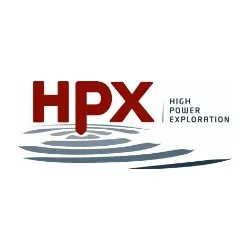A civil society organization under the banner “ONE VOICE LIBERIA” has called on officials of the Interministerial Concession Committee (IMCC) under the Chairmanship of the National Investment Commission and key advisors of the President to reject quick fix solutions in the ongoing rail access negotiations between the government of Liberia, ArcelorMittal, and Ivanhoe Atlantic (High Power Exploration HPX).
In a statement issued over the weekend, the group frowned on what they see as attempts by some of President Boakai’s officials and economic advisors to go back to the old days of “Oui, Oui, Bon, Bon” when Liberia negotiated the country’s borders with France. The old joke was that Liberian negotiators pretended to understand French and answered “Oui, Oui, Bon, Bon” to everything the French negotiators said. That may not have been true because the two sides exercised unequal power. But, in the end Liberia lost significant territory to the French colonial power.
Similarly, Liberia concluded many concession agreements in the 1920s and 1960s in agriculture and mining that left much to be desired. But those were the conditions of the times. The concession agreements led to economic boom and the creation of bustling industrial enclave towns. Towns such as Bomi Hils, Bong Town, and Yekepa became ghost towns amidst global economic crises, mine closures, the April 12 Coup and Liberia’s protracted civil war.
Times have changed. This is the 21st Century. President Boakai has experienced all the phases, the boom in Bomi Hills, the economic hardships when boom towns went burst and the civil crises. He is determined to make the difference. He wants a review of all existing agreements including comprehensive audits where necessary. He wants fair and equitable agreements going forward. Above all he wants inclusive economic growth and development with prosperity for all Liberians where no one is left behind.
He has consequently embraced, in pursuit of his goals, Executive Order 112 for the establishment of the National Railway Authority (NRA) which he extended in October 2024 by Executive Order 136 confirming the Liberian Government’s ownership of assets of railway and associated infrastructure in various parts of the country including the Yekepa Railway from Yekepa to Buchanan. The Executive Order makes mandatory for the Yekepa to Buchanan Port Corridor to transition to an “independent, multiuser, non-discriminatory, open access” as imbedded in the Framework Agreement between Liberia and Guinea and ratified by the two governments.
The Rail Corridor has also been identified as essential to the successful implementation of the African Continental Free Trade Ares (AfCFTA) and the promotion of trade between Liberia and Guinea as well as within the Mano River Union (MRU), ECOWAS and the entire African Continent. In addition, it would allow the development of the rail infrastructure in other parts of the country including Bong, Western Cluster, Putu, etc., and would provide access to parts of the country that are currently inaccessible or hard to reach. It would allow trade flow in the most efficient way and open rural areas of Liberia to produce and market other minerals and agricultural and manufactured goods for export to the world.
The ongoing negotiations for access agreement between the Government of Liberia and Ivanhoe Atlantic (HPX) are taking place within the context of the President’s unwavering commitment to an independent operator for the multiuser Yekepa-Buchanan rail. Sources close to the negotiations say government is willing to have AML continue to serve as user operator of the rail until its current MDA expires in 2029. The MRA will become operationalized within that period and would assume responsibility to put out tender for an independent operator come 2030 which would satisfy HPX.
AML on the other hand is insisting on retaining control as user operator for a renewed MDA for additional 25 years from 2030. HPX finds that condition unacceptable. Granting AML such right would contravene Liberian law under Executive Orders 112 and 136. The opposing positions became underlining cause for divergence within the IMCC between those supporting the broad and long-term development objectives of the President for an independent operator and those siding with AML, arguing “a bird in hand is better than two in the bush.” The AML advocates include some of the most powerful officials and advisors to the President as well as some UP partisans and legislative allies.
Supporters of the President’s vision became targets of vicious press propaganda recently.
The CSO Group is calling on the two sides to speak with one voice as Liberians. They argue that AML has an 18-year track record in Liberia. AML claims it has not turned profit in those 18 years. It sells its ore to a parent company abroad. The parent company took loans on behalf of the local company at a set interest rate and sets the price of the ore while passing on its expenses on to the local AML company. That arrangement and those operations for the past 18 years should be audited. AML workers in Yekepa still live in converted containers with little visible improvement in housing and living conditions after 18 years.
The economy was inherited in bad shape for true but negotiations of AML agreement and all agreements require rigor and vigilance with a united voice. NO MORE OUI, OUI; BON, BON, ONE VOICE LIBERIA DEMANDS.


